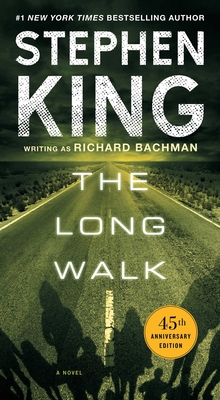
Givens, Jarvis R.
product information
description
6
--Boston Review "Informative and inspiring...An homage to the achievement of an often-forgotten racial pioneer."
--Glenn C. Altschuler, Florida Courier "A long-overdue labor of love and analysis...that would make Woodson, the ever-rigorous teacher, proud."
--Randal Maurice Jelks, Los Angeles Review of Books "Fascinating, and groundbreaking. Givens restores Carter G. Woodson, one of the most important educators and intellectuals of the twentieth century, to his rightful place alongside figures like W. E. B. Du Bois and Ida B. Wells."
--Imani Perry, author of May We Forever Stand: A History of the Black National Anthem Black education was subversive from its inception. African Americans pursued education through clandestine means, often in defiance of law and custom, even under threat of violence. They developed what Jarvis Givens calls a tradition of "fugitive pedagogy"--a theory and practice of Black education epitomized by Carter G. Woodson--groundbreaking historian, founder of Black History Month, and legendary educator under Jim Crow. Givens shows that Woodson succeeded because of the world of Black teachers to which he belonged. Fugitive Pedagogy chronicles his ambitious efforts to fight what he called the "mis-education of the Negro" by helping teachers and students to see themselves and their mission as set apart from an anti-Black world. Teachers, students, families, and communities worked together, using Woodson's materials and methods as they fought for power in schools. Forged in slavery and honed under Jim Crow, the vision of the Black experience Woodson articulated so passionately and effectively remains essential for teachers and students today.
A fresh portrayal of one of the architects of the African American intellectual tradition, whose faith in the subversive power of education will inspire teachers and learners today.
"As departments...scramble to decolonize their curriculum, Givens illuminates a longstanding counter-canon in predominantly black schools and colleges."--Boston Review "Informative and inspiring...An homage to the achievement of an often-forgotten racial pioneer."
--Glenn C. Altschuler, Florida Courier "A long-overdue labor of love and analysis...that would make Woodson, the ever-rigorous teacher, proud."
--Randal Maurice Jelks, Los Angeles Review of Books "Fascinating, and groundbreaking. Givens restores Carter G. Woodson, one of the most important educators and intellectuals of the twentieth century, to his rightful place alongside figures like W. E. B. Du Bois and Ida B. Wells."
--Imani Perry, author of May We Forever Stand: A History of the Black National Anthem Black education was subversive from its inception. African Americans pursued education through clandestine means, often in defiance of law and custom, even under threat of violence. They developed what Jarvis Givens calls a tradition of "fugitive pedagogy"--a theory and practice of Black education epitomized by Carter G. Woodson--groundbreaking historian, founder of Black History Month, and legendary educator under Jim Crow. Givens shows that Woodson succeeded because of the world of Black teachers to which he belonged. Fugitive Pedagogy chronicles his ambitious efforts to fight what he called the "mis-education of the Negro" by helping teachers and students to see themselves and their mission as set apart from an anti-Black world. Teachers, students, families, and communities worked together, using Woodson's materials and methods as they fought for power in schools. Forged in slavery and honed under Jim Crow, the vision of the Black experience Woodson articulated so passionately and effectively remains essential for teachers and students today.
member goods
No member items were found under this heading.
listens & views

HALO WARS / O.S.T. (BONUS ...
by HALO WARS / O.S.T. (BONUS DVD) (JPN)
COMPACT DISCout of stock
$32.99
Return Policy
All sales are final
Shipping
No special shipping considerations available.
Shipping fees determined at checkout.






